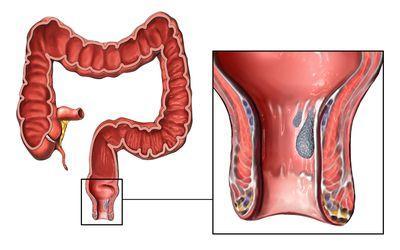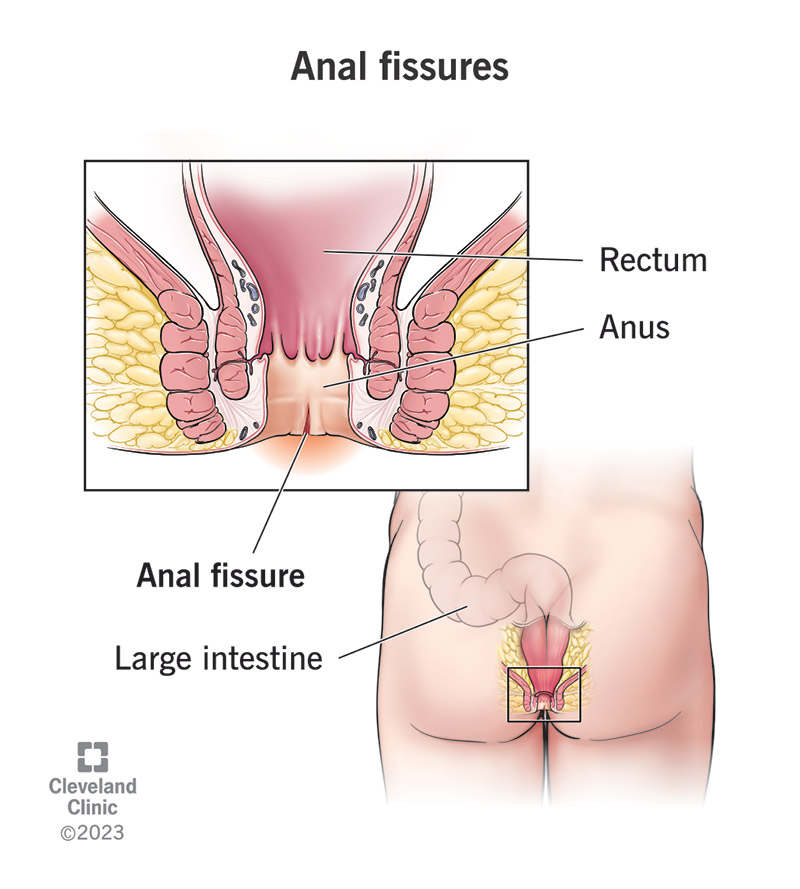If you’ve ever wondered why the simple act of going to the bathroom can sometimes be a painful experience, then “Why Does It Hurt When I Poop?” is the book for you. This informative and lighthearted guide explores the many reasons why bowel movements can cause discomfort and provides practical tips and advice for relieving the pain. With its engaging and friendly tone, this book is a must-read for anyone seeking to understand and remedy this common issue.
Common Causes of Painful Bowel Movements
Constipation
One of the most common causes of painful bowel movements is constipation. When you are constipated, your stool becomes hard and difficult to pass, leading to straining and discomfort. This can make the process of going to the bathroom quite painful. In order to manage constipation and relieve the pain associated with it, it is important to increase your fiber intake, stay hydrated, and practice good bowel habits.
Hemorrhoids
Hemorrhoids are another common cause of painful bowel movements. They occur when the veins in your rectum and anus become swollen and inflamed. Hemorrhoids can cause pain, itching, and bleeding during bowel movements. To alleviate the discomfort, over-the-counter creams, warm baths, and keeping the anal area clean can help. It is also important to avoid straining and to maintain a high-fiber diet to prevent hemorrhoids from worsening.
Anal Fissures
Anal fissures are small tears or cracks in the lining of the anus, which can result in painful bowel movements. They can be caused by constipation, diarrhea, or trauma to the anal area. To promote healing and reduce pain, it is important to keep the area clean, take warm baths, and use topical treatments such as ointments or creams. Additionally, managing underlying conditions such as constipation or diarrhea can help prevent further anal fissures.
Anal Abscess
An anal abscess is a painful, swollen lump that forms near the anus. It is typically caused by an infection in the anal glands. Apart from experiencing painful bowel movements, other symptoms may include fever, swelling, and discharge. It is crucial to seek medical treatment, as an abscess may require drainage and antibiotics. Identifying and addressing the underlying infection is also important to prevent recurrent abscesses.
Inflammatory Bowel Disease (IBD)
Inflammatory bowel disease, including conditions like Crohn’s disease and ulcerative colitis, can cause painful bowel movements due to chronic inflammation and ulceration in the digestive tract. Individuals with IBD may also experience symptoms such as diarrhea, abdominal pain, and weight loss. Treatment for IBD typically involves medication, lifestyle changes, and managing flare-ups through a personalized care plan. Regular follow-ups with a gastroenterologist are essential for managing the condition and minimizing discomfort.
Anal Fistula
An anal fistula is an abnormal passageway that develops between the anus and the skin surrounding it. It is usually the result of an unresolved anal abscess. In some cases, fistulas can cause pain and discomfort during bowel movements. Treatment for anal fistulas may involve antibiotics, drainage, or surgical intervention, depending on the severity and complexity of the condition.
Proctitis
Proctitis refers to the inflammation of the rectum, which can lead to painful bowel movements. It can be caused by various factors, including infection, radiation therapy, or autoimmune conditions such as ulcerative colitis. Treatment for proctitis depends on the underlying cause and can involve medication, lifestyle changes, or in some cases, surgical intervention.
Diverticulitis
Diverticulitis is a condition characterized by small pouches, called diverticula, that form in the lining of the colon. When these pouches become infected or inflamed, it can result in painful bowel movements. Diverticulitis may also cause symptoms such as abdominal pain, fever, and changes in bowel habits. Treatment usually involves antibiotics, a clear liquid diet, and in severe cases, surgery may be necessary.
Pelvic Floor Dysfunction
Pelvic floor dysfunction occurs when the muscles and ligaments in the pelvic area do not function properly. This can lead to painful bowel movements, as well as other symptoms such as urinary incontinence and pelvic pain. Physical therapy, pelvic floor exercises, and lifestyle modifications can often help manage pelvic floor dysfunction and alleviate the associated symptoms.
Rectal Prolapse
Rectal prolapse happens when the rectum protrudes through the anus. This condition can cause discomfort and pain during bowel movements. In addition, individuals with rectal prolapse may experience a feeling of incomplete bowel movement, vaginal or penile protrusion, and rectal bleeding. Treatment options include lifestyle changes, medication, and in severe cases, surgical repair.
Less Common Causes of Painful Bowel Movements
Colon Cancer
Colon cancer is a less common cause of painful bowel movements, but it is important to be aware of its potential symptoms. Pain during bowel movements can occur when a tumor obstructs the colon, causing stool to become narrower and more difficult to pass. Other potential symptoms of colon cancer include rectal bleeding, unexplained weight loss, and changes in bowel habits. If you experience persistent pain or other worrisome symptoms, it is essential to consult a healthcare professional for further evaluation.
Rectal Cancer
Similar to colon cancer, rectal cancer can also lead to painful bowel movements. Tumors in the rectum can cause narrowing, obstruction, and discomfort during the passage of stool. Additional symptoms may include rectal bleeding, changes in bowel habits, and unexplained weight loss. If you have concerns about rectal cancer, it is crucial to seek medical attention for a proper diagnosis and appropriate treatment.
Infections
Certain infections, such as sexually transmitted infections or bacterial infections, can cause pain during bowel movements. These infections may result in inflammation or irritation of the rectum or anus. Treatment usually involves antibiotics or antiviral medication, depending on the specific infection. If you suspect that an infection is causing your painful bowel movements, consult a healthcare professional for proper diagnosis and treatment.
Rectocele
A rectocele refers to the protrusion of the rectum into the back wall of the vagina. This condition can cause discomfort and pain during bowel movements, as well as other symptoms like a feeling of rectal fullness or the need to manually assist bowel movements. Treatment options include lifestyle modifications, pelvic floor exercises, and in some cases, surgical repair.
Endometriosis
Endometriosis is a condition in which the tissue lining the uterus grows outside of it, leading to pain and inflammation. In some cases, endometriosis can affect the rectum, causing pain during bowel movements. Other symptoms may include pelvic pain, painful periods, and fertility issues. Treatment for endometriosis typically involves a combination of medication, hormonal therapy, and sometimes surgery.
Gynecological Conditions
Certain gynecological conditions, such as ovarian cysts or pelvic inflammatory disease, can cause pain during bowel movements. These conditions can result in inflammation or pressure on the surrounding organs, including the rectum. Treatment options depend on the specific condition and may involve medication, hormonal therapy, or surgery.
Irritable Bowel Syndrome (IBS)
Irritable bowel syndrome (IBS) is a common disorder that affects the colon and can cause painful bowel movements. It is characterized by symptoms such as abdominal pain, bloating, and changes in bowel habits. Management of IBS includes dietary changes, stress reduction techniques, and medications to alleviate symptoms. If you suspect you may have IBS, consult a healthcare professional for proper diagnosis and personalized treatment.
Overuse of Laxatives
While laxatives can provide temporary relief from constipation, overuse or misuse of laxatives can lead to painful bowel movements. Excessive use can cause dependency, dehydration, and electrolyte imbalances, which can result in discomfort and cramping during bowel movements. It is important to follow the recommended dosage and speak with a healthcare professional if you are experiencing recurring constipation.
Medication Side Effects
Certain medications can have side effects that include painful bowel movements. For example, opioids or some types of pain medications can cause constipation and difficulty passing stool. If you are experiencing painful bowel movements as a side effect of medication, consult your healthcare provider to explore alternative options or additional management strategies.

How to Relieve Painful Bowel Movements
Manage Constipation
One effective way to relieve painful bowel movements is to manage constipation. Increasing your fiber intake can help soften your stool and make it easier to pass. Foods such as fruits, vegetables, whole grains, and legumes are good sources of fiber. Additionally, regular exercise and establishing a consistent bowel routine can promote regularity and reduce discomfort.
Increase Fiber Intake
A fiber-rich diet can help alleviate painful bowel movements by promoting softer and bulkier stools. Along with fruits, vegetables, and whole grains, consider adding sources of insoluble fiber, such as wheat bran and nuts. It is important to increase fiber intake gradually to prevent bloating or gas. If needed, you may also consider fiber supplements, but consult a healthcare professional before starting any new supplements.
Stay Hydrated
Staying hydrated is crucial for maintaining healthy bowel movements. Drinking an adequate amount of water can help soften the stool, making it easier to pass. Aim to drink at least 8 glasses of water per day. Avoid excessive consumption of caffeinated or alcoholic beverages, as they can contribute to dehydration and potentially worsen constipation.
Use Over-the-Counter Analgesics
Over-the-counter analgesic medications, such as acetaminophen or ibuprofen, can help alleviate pain during bowel movements. However, it is important to follow the recommended dosage and consult a healthcare professional if you have any underlying conditions or concerns.
Apply Topical Treatments
Applying topical treatments, such as hemorrhoid creams or ointments, can provide temporary relief for painful bowel movements associated with conditions like hemorrhoids or anal fissures. Topical treatments can help reduce inflammation, itching, and discomfort in the anal area. It is important to read and follow the instructions carefully, and if symptoms persist or worsen, consult a healthcare professional.
Take Warm Baths
Taking warm baths can help relax the muscles in the lower abdomen and provide relief from painful bowel movements. Soaking in warm water for 15-20 minutes several times a day can help reduce discomfort and inflammation. Adding Epsom salts or essential oils to the bathwater may provide additional soothing effects.
Practice Good Anal Hygiene
Maintaining good anal hygiene is essential in preventing and relieving painful bowel movements. After each bowel movement, gently clean the anal area with mild soap and water or use pre-moistened wipes specifically designed for this purpose. Avoid harsh wiping or excessive rubbing, as it can further irritate the area. Always pat the area dry and avoid using scented or alcohol-based products.
Avoid Straining
Straining during bowel movements can exacerbate pain and discomfort. It is important to allow bowel movements to occur naturally without excessive pushing or straining. To encourage smoother elimination, try to relax, maintain good posture on the toilet, and provide support by using a footstool or squatting position.
Seek Medical Treatment
If you are experiencing persistent or worsening pain during bowel movements, it is important to seek medical treatment. A healthcare professional can evaluate your symptoms, perform any necessary tests or examinations, and provide appropriate treatment options tailored to your specific condition. Do not hesitate to reach out for medical guidance if you are concerned or have any questions.
Address Underlying Conditions
Painful bowel movements can be symptomatic of underlying conditions such as inflammatory bowel disease, colorectal disorders, or gynecological issues. It is important to address and manage these underlying conditions in order to relieve pain and promote overall bowel health. Consult a healthcare professional for a proper diagnosis and an effective treatment plan.
When to See a Doctor
Persistent or Worsening Pain
If you are experiencing persistent or worsening pain during bowel movements, despite self-care measures, it is important to seek medical attention. Persistent pain may be a sign of an underlying condition that requires further evaluation and appropriate treatment.
Rectal Bleeding
Rectal bleeding during or after bowel movements should always be evaluated by a healthcare professional. While it can be caused by minor conditions such as hemorrhoids, it can also indicate more serious issues like colorectal cancer. Prompt evaluation can help determine the cause and guide appropriate treatment.
Unexplained Weight Loss
Unexplained weight loss, especially if accompanied by painful bowel movements, requires medical evaluation. Significant, unintentional weight loss can be a sign of several underlying conditions, including digestive disorders or cancer. Seeking medical advice is crucial for proper diagnosis and management.
Changes in Bowel Habits
Any noticeable changes in bowel habits, such as frequency, consistency, or color of stool, should be discussed with a healthcare professional. These changes could be indicative of an underlying condition that requires further investigation and appropriate management.
Frequent Nausea or Vomiting
Frequent nausea or vomiting in conjunction with painful bowel movements may be a sign of more serious issues and should not be ignored. These symptoms can be associated with conditions such as intestinal obstruction or inflammatory bowel disease. Seeking medical attention is important for accurate diagnosis and timely treatment.
Family History of Colon or Rectal Cancer
If you have a family history of colon or rectal cancer, it is important to be vigilant about any changes or abnormalities related to bowel movements. Regular screenings may be recommended, and any concerning symptoms should be discussed with a healthcare professional.
Symptoms in Children
Children experiencing painful bowel movements should be evaluated by a pediatrician. While it is often caused by minor issues such as constipation, it is important to rule out any underlying conditions or anatomical abnormalities that may require medical intervention.
Severe or Unusual Symptoms
Severe or unusual symptoms, such as extreme pain, excessive bleeding, or the inability to pass stool, require immediate medical attention. These symptoms may indicate a serious condition that requires prompt evaluation and treatment.
Chronic Pain or Discomfort
If you experience chronic pain or discomfort during bowel movements, it is important to consult a healthcare professional for a proper diagnosis and ongoing management. Chronic pain can significantly impact your quality of life, and a healthcare professional can guide you towards effective treatments and strategies to alleviate discomfort.
In conclusion, painful bowel movements can be caused by a variety of factors, ranging from common conditions such as constipation and hemorrhoids to more serious conditions like colorectal cancer or inflammatory bowel disease. Understanding the underlying causes and actively managing them can help alleviate discomfort and promote overall bowel health. However, if you experience persistent or worrisome symptoms, it is important to seek medical attention for accurate diagnosis and appropriate treatment. Remember, taking care of your digestive health is essential for your overall well-being.

